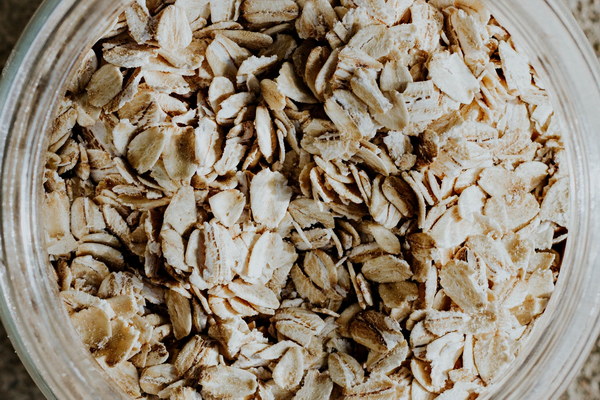Nourishing Foods for Menopausal Women A Guide to Eating Your Way to Wellness
The transition into menopause is a significant milestone for many women, often marked by a host of uncomfortable symptoms such as hot flashes, mood swings, and night sweats. While hormone replacement therapy (HRT) is a common treatment option, many women are seeking more natural ways to alleviate these symptoms. One such method is through dietary changes. Here’s a guide to the best foods for menopausal women to help them navigate this challenging time.
1. Calcium-Rich Foods
Calcium is crucial for maintaining bone density and preventing osteoporosis, a condition that is more prevalent among postmenopausal women. Foods rich in calcium include dairy products like milk, cheese, and yogurt. If you are lactose intolerant, consider fortified plant-based milks, tofu, and leafy greens such as kale and broccoli.
2. Fiber-Rich Foods
Dietary fiber is essential for digestive health and can help alleviate symptoms of constipation, a common problem during menopause. Foods high in fiber include whole grains, legumes, fruits, and vegetables. Berries, apples, and pears are particularly beneficial due to their high fiber content and phytoestrogen levels, which can help balance hormone levels.
3. Healthy Fats
Good fats, particularly omega-3 fatty acids, are important for reducing inflammation and may help alleviate symptoms of menopause. Omega-3s are found in fatty fish like salmon, mackerel, and sardines. Flaxseeds, chia seeds, and walnuts are also great plant-based sources of omega-3s.
4. Vitamin D
Vitamin D is essential for bone health and has been shown to help reduce the severity of hot flashes. Foods high in vitamin D include fatty fish, egg yolks, and fortified foods such as milk and orange juice. Sunlight is another significant source of vitamin D, so make sure to get enough exposure to the sun during daylight hours.
5. Phytoestrogens

Phytoestrogens are plant-based compounds that mimic the effects of estrogen in the body. Foods high in phytoestrogens, such as flaxseeds, soy products, and legumes, can help alleviate menopausal symptoms. However, it is important to consume soy products in moderation, as excessive intake may have negative effects on some women.
6. Magnesium-Rich Foods
Magnesium is a mineral that can help regulate mood and reduce symptoms of menopause, such as anxiety and insomnia. Foods high in magnesium include leafy greens, nuts, seeds, legumes, and whole grains. Avocado is another great source of magnesium and healthy fats, making it a perfect addition to a balanced diet.
7. Probiotics
Probiotics are beneficial bacteria that can improve gut health and support the immune system. Foods high in probiotics include yogurt, kefir, sauerkraut, and kimchi. A healthy gut microbiome may also contribute to better mood regulation and a decrease in menopausal symptoms.
8. Herbal Teas
Herbal teas, such as chamomile, lavender, and black cohosh, have been traditionally used to alleviate menopausal symptoms. While scientific evidence is limited, many women find relief from hot flashes and mood swings by incorporating these teas into their daily routine.
In conclusion, a balanced diet rich in essential nutrients can play a significant role in managing menopausal symptoms. By incorporating these foods into your daily meals, you may find relief from common discomforts and improve your overall health and well-being during this transformative period. Remember to consult with a healthcare professional before making any significant changes to your diet or treatment plan.









